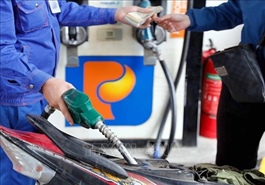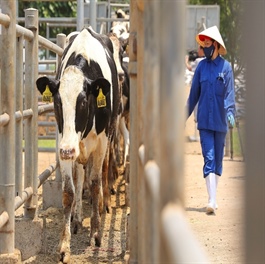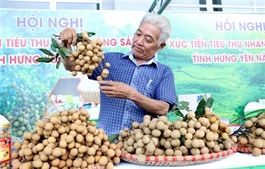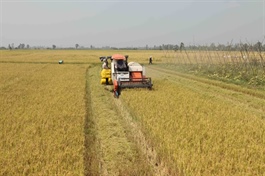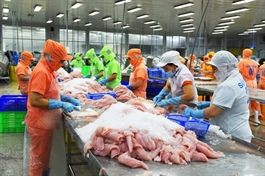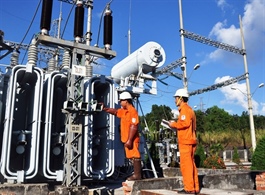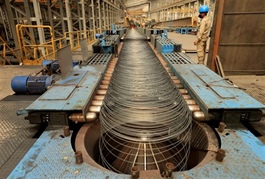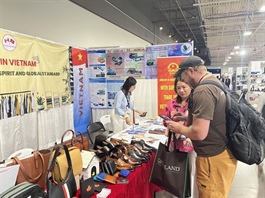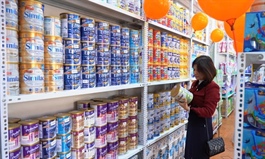High-value coffee drives nation’s export momentum
High-value coffee drives nation’s export momentum
The surge in export value of coffee, driven by higher-value processed and speciality products, marks a shift in strategy and signals untapped potential in the premium segment.
Coffee exports reached a new milestone in the first seven months of 2025, generating $6 billion in export revenue from 1.1 million tonnes, according to data released by the Ministry of Agriculture and Environment (MoAE) last week July. This figure surpasses the country’s full-year coffee export turnover in 2024, which stood at $5.48 billion.
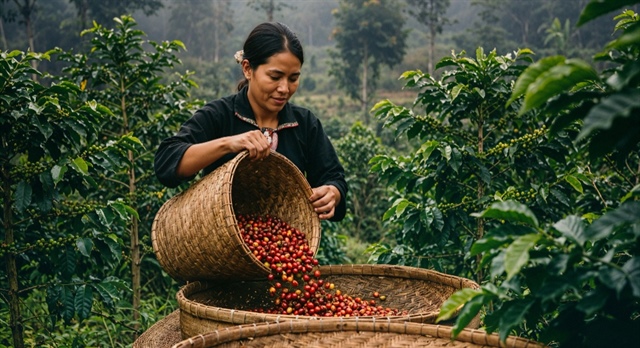
High-value coffee drives nation’s export momentum, AI-generated |
According to MoAE forecasts, Vietnam’s coffee export turnover could surpass the $7.5 billion target set for 2025, representing a 36.9 per cent increase on-year. The government also aims to raise the proportion of processed coffee to 30-40 per cent by 2030.
Processed coffee, including instant products, accounted for 11 per cent of total export volume and 13.1 per cent of total value, bringing in approximately $600 million. Germany, Italy, and Spain were Vietnam’s top three coffee importers during the six months, representing 16.3, 7.9, and 7.4 per cent of total export value, respectively.
Alongside high export volumes, Vietnam also reported robust growth in speciality coffee exports, with prices reaching 1.5 to two times the global average, according to the MoAE.
Nguyen Nam Hai, chairman of the Vietnam Coffee-Cocoa Association, attributed the surge in export value to a significant increase in average export prices, which rose over 59 per cent on-year to more than $5,700 per tonne. He also cited strong demand from key markets such as the United States, EU, Japan, South Korea, and China.
In the US market alone, Vietnam exported nearly 60,600 tonnes of coffee in the first half of 2025, earning $333 million in revenue.
“This success comes from a focused push into higher-value segments such as deep-processed, speciality, and instant coffee,” Hai noted. “The increase in Arabica and processed coffee exports signals a strategic shift towards technological investment and development of Arabica-growing regions, enabling Vietnam to export higher-value-added products that meet demand.”
Despite being the world’s second-largest coffee exporter after Brazil, more than 90 per cent of Vietnam’s coffee exports remain in raw form. With global consumer preferences shifting towards speciality-grade coffee, and with stricter import regulations and tariff issues, local exporters are accelerating efforts in deep processing and brand development.
Phan Minh Thong, chairman of Phuc Sinh JSC, emphasised the importance of moving away from raw exports. “To increase value, the Vietnamese coffee sector must break from the traditional mindset of raw material exports and instead focus on quality, branding, deep processing, and innovation,” Thong said.
This transformation underpins Phuc Sinh’s strategy. The company has developed Arabica and Cascara farms in the northern mountainous province of Son La certified by the Rainforest Alliance, and established partnerships with farmers to improve yields. They also employ traceability systems to comply with global standards.
“The added value of Phuc Sinh’s coffee products has increased by 30–50 per cent compared to unprocessed exports. We have also expanded into premium market segments,” Thong said. “If we stay on the right path, Vietnam will maintain its global leadership in robusta exports, and can also successfully tap into the speciality coffee market.”
Promoting processed coffee products is also key for localities, where coffee is a key crop. The Central Highlands province of Dak Lak has the largest coffee cultivation area and output in Vietnam, boasting 212,000 hectares of coffee plantations and an annual production exceeding 520,000 tonnes.
The province is implementing various preferential policies to attract investment in this sector. Since 2016, Dak Lak has approved plans for 20 coffee processing projects, with a total capital exceeding VND4 trillion ($160 million), involving both domestic and foreign enterprises.
In 2024 alone, the provincial People’s Committee approved a list of key ventures through 2025, comprising 36 projects across various sectors, including eight projects in agriculture and agricultural product processing, at a cost of nearly VND1 trillion ($40 million).
Nguyen Thien Van, Vice Chairman of the committee, said, “We are committed to deep processing, aiming for 15-20 per cent of coffee products to undergo advanced processing. During implementation, we will focus on industrial parks and clusters to draw in enterprises to invest in production within these areas. This will enhance deep processing of the province’s agricultural products and boost exports, increasing value for farmers and businesses while meeting the socioeconomic development needs of the region.”
Thanks to supportive policies and local assistance, many enterprises have ramped up investments to enhance the value of key agricultural products, achieving impressive growth.
For example, An Thai Coffee JSC has invested in modern equipment and signed contracts with cooperatives to purchase raw materials, building a sustainable value chain from production to processing.
General director Nguyen Xuan Loi said, “We focus on deep processing solutions and the importance of value chain linkages. A well-coordinated and rational value chain plays a key role in creating shared product value.”
"We are committed to deep processing, aiming for 15-20 per cent of coffee products to undergo advanced processing. " - Nguyen Thien Van, vice Chairman Dak Lak People’s Committee
- 11:27 22/08/2025







